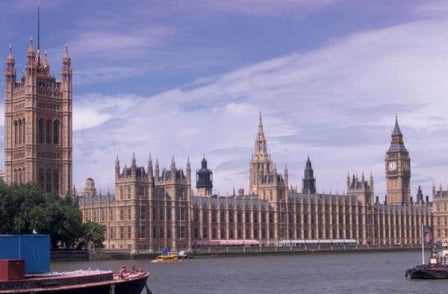
The Government looks set to reject Royal Charter on press regulation put forward by most newspaper and magazine publishers and instead pursue a version of a rival Parliament-backed plan.
The Privy Council (effectively a sub-committee of Government ministers) is due to meet tomorrow to consider the publishers' press regulation plan, put forward by owners' body Pressbof.
Maria Miller, Secretary of State for Culture, Media and Sport will make a statement on press regulation to the House of Commons at 4.30pm today.
BBC2's Newsnight reported that a sub-committee of the Privy Council, set up to examine the industry's proposed Royal Charter, has come out against it.
In a separate report, the Guardian said Coalition ministers were working to prevent Wednesday's meeting of the full Privy Council, which is expected to consider the sub-committee's findings, turning into a final rejection of the industry plan.
The paper said efforts were being made to find a compromise around the industry's proposed charter and the original charter backed by the three main political parties.
Trevor Kavanagh, associate editor of the Sun, told Newsnight: "It is not a shock. It's what we'd been given fairly clear clues would happen. I think it has to be seen as a great victory for the forces of oppression of a free press, Hacked Off in particular, and the politicians who went along for the ride."
Hacked Off, the lobby group which has campaigned for tighter press regulation, welcomed the reports of the sub-committee's decision but expressed concern at the prospect of further delay.
"We are alarmed to hear that the Prime Minister now seems prepared to risk the breakdown of the cross-party agreement by once again delaying the approval of the Leveson royal charter," it said in a statement .
"Ten months after the publication of the Leveson report and seven months after all parties in Parliament endorsed its recommendations in a royal charter, there can be no legitimate excuse for yet another delay."
A spokesman for the Department for Culture, Media and Sport said the sub-committee was continuing to consider the industry's proposals: "There is no deadline or timetable for those considerations. They will continue until they reach a decision."
Chris Blackhurst, group content editor of The Independent and its sister titles, told the Today Programme that either charter would "cost all newspapers a lot more money".
"It's well known that the newspaper industry is in trouble," he added. "Unfortunately, what's happened is that all the positions are completely polarised and that's also true of Hacked Off, it's true of the politicians, it's true of the press, and we are all in our trenches and we are all chucking grenades at each other and we are not really very far apart."
Chief Secretary to the Treasury Danny Alexander, speaking on BBC Breakfast, said: "It is coming to a head now and I am the co-chair of the committee of the Privy Council that is considering this matter.
"We are still considering the final details of our recommendation to the Privy Council. There is a proper due process around this and, if you don't mind, I am going to stick to that due process.
"Our decision will be made public once it is made and will go to the Privy Council in the normal way.
"I am not going to comment in any way beyond that."
Asked if there was a timetable, he said: "The Privy Council meets tomorrow, we had a meeting of our committee yesterday. There are a few remaining Is to be dotted and Ts to be crossed following that discussion, so no final decision has been made.
"But even when it is, we have a proper due process to follow and that doesn't include sharing our deliberations with you."
The system of press regulation proposed under the newspaper industry plan gives publishers more of a say and makes creating a low-cost libel arbitration system optional.
Parliament's plan makes libel arbitration compulsory, creates an appointments system which is completely independent of the industry and – controversially – states that the system can only be changed with a two-thirds majority of both houses of Parliament.
Regional newspaper publishers in particular fear that creating a libel arbitration system which is free for claimants will open them up "crippling expensive" new claims.
Meanwhile, the newspaper and magazine industry has been pressing on regardless with the creation of its new regulator – the Independent Press Standards Organisation.
Publishers may ultimately decided to ignore whatever system of regulation the Government decides upon via the Privy Council. If the regulator fails to achieve official recognition via a Royal Charter-approved body this will leave publishers open to the threat of exemplary damages in libel and privacy actions.
Email pged@pressgazette.co.uk to point out mistakes, provide story tips or send in a letter for publication on our "Letters Page" blog
